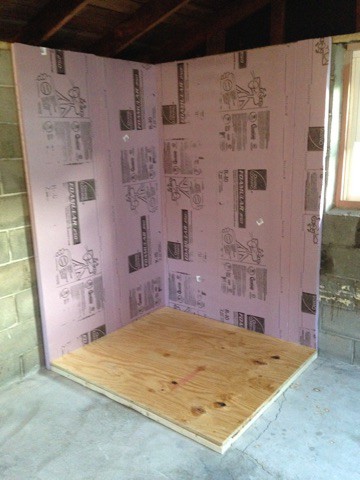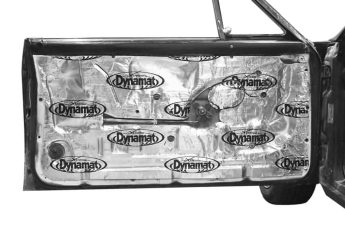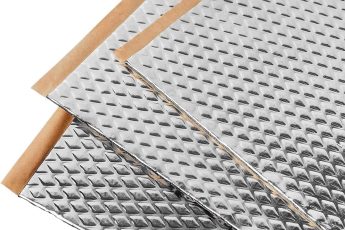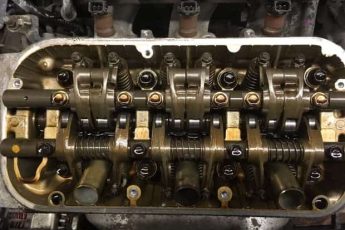Wheel bearing noise can be caused by a variety of factors. Knowing the causes and symptoms of this type of noise can help you identify it and fix the problem. To find out whether your wheel bearing is noisy, read this article. It will help you identify a bad wheel bearing and fix it before it affects your driving.
Symptoms of a bad wheel bearing
If you’ve ever experienced loose steering, it may be the result of bad wheel bearings. This happens when a wheel bearing is worn and loses its grip on the wheel spindle or hub. It can also cause the steering to feel loose, making it important to fix the problem right away. When the bearing wears out, the outer lining becomes rough and corroded. As a result, the wheel becomes loose and transmits vibrations to the tires.
A bad wheel bearing can be caused by several things, including impact damage and poor road quality. Even aftermarket suspension parts can cause premature failure because they put additional pressure on the wheel bearing. Furthermore, bigger wheels with lower profile tires put more strain on the wheel end bearing, as they’re less forgiving. In addition, driving in adverse weather conditions can also cause premature failure of wheel bearings.
Another common sign of bad wheel bearings is a loud noise. These can either be audible or silent, and indicate a need to visit a mechanic immediately. These noises will often increase in volume and frequency as the wheel turns. This is a sure sign of a bad wheel bearing, so make sure to take your car to a mechanic as soon as possible.
Worn wheel bearings cause a lot of problems. A bad wheel bearing can cause your car to have a hard time rolling or will wobble when you put the clutch on. Worn wheel bearings also affect the wheel alignment. Finally, a bad wheel bearing can cause your tires to be unevenly worn.
A growling noise is another symptom of a bad wheel bearing. This noise may begin as a low growling sound, but it may get louder as you drive faster. The noise may be accompanied by a grinding sound. It can even cause steering wheel vibrations.
When a wheel bearing fails, the wheel may wobble or even fall off while you’re driving. In addition to causing wobbling, a bad wheel bearing can also cause the tires to wear out unevenly and increase your tire costs.

Causes of wheel bearing noise
Wheel bearing noise can be caused by several different things, such as damaged parts, inadequate lubrication, incorrect housing or shaft tolerances, or excessive radial play. Depending on the exact cause, the noise can range from a dull rumble to a chirping, squealing, or even clicking sound.
Often, these noises are accompanied by the shaking of the steering wheel. This is a sign that the axle is undergoing damage. The noises increase when the car accelerates and decrease as the car decelerates. The wheel bearing itself is connected to other components of the car’s suspension system, and it is crucial that the driver take note of any other noises they may hear while driving.
The most common cause of wheel bearing noise is wheel failure. The noise is usually mistaken for engine noise, and it increases in volume with speed. This type of noise will also increase as the condition worsens. A sound similar to this is also common when steering a vehicle with a faulty wheel bearing.
Wheel bearing noise can be hard to diagnose because the noise fluctuates with the speed of the vehicle. It may also be the result of worn tires. In some cases, the noise will be rhythmic, like a chirping sound. In other cases, it may be continuous or intermittent, and may last for short periods of time.
Wheel bearing noise is a warning sign that the wheel bearings are faulty. If you hear wheel bearing noises while driving, you should have them checked by a mechanic right away. A faulty wheel bearing could cause wheel wobbles and a clicking sound. Alternatively, it could be the result of a broken shock or improper installation. In this case, you should replace the wheel bearing.
Wheel bearing noise may also be caused by uneven tyres, which can cause damage to the wheel. Uneven tyres can also cause contaminated lubrication. However, these symptoms will not appear immediately. Often, it can take months to detect a problem, so it is important to visit a mechanic immediately.
Diagnosing a bad wheel bearing
When your car starts to make noises when you are driving, this is an indicator that you need to replace your wheel bearing. These noises can vary greatly, depending on how fast you are traveling and how hard you are cornering. The noise is also audible through the steering wheel.
A few easy diagnostic tests can help you determine if a wheel bearing is at fault. The first test is to listen for noises. If you hear a whine or low-tone howling, your wheel bearing might be at fault. You can also check for wind noises. Open the windows and listen for the noise.

Another cause of premature wheel bearing failure is aftermarket suspension parts. This is because the parts put more pressure on the wheel bearing. Similarly, bigger wheels with low-profile tires are more likely to fail. This is because lower profile tires are not as forgiving as high-profile tires. Also, driving over rough roads or potholes can cause extreme impact on the bearing. These elements, combined with high speeds, can cause premature wheel bearing failure.
If the noise is coming from the front tires, it could be a bad wheel bearing. If this is the case, you will have to replace them as soon as possible. The same is true for the rear tires. Make sure that you check the tire inflation pressure on the front and rear tires. It is important to check that both tires are properly inflated to avoid any further damage.
Fortunately, wheel bearings are designed to last the life of the car. However, high-mileage vehicles are more likely to experience wheel bearing failure. Some symptoms of a bad wheel bearing include loud noises when the wheel is rotated, excessive play when the wheel is rocked, uneven tire wear, a shaky steering wheel, and pulling to one side while driving. The wheel bearings are located inside the hub of the wheel and enable the wheel to rotate smoothly when the vehicle is in motion. When they fail, internal lubricant may leak out of the wheel bearing.
The replacement of a wheel bearing is easier if you have the right tools. Using these tools, you can perform a quick and effective wheel bearing replacement. This repair can save you money and time and can be done yourself in your garage.
Fixing a noisy wheel bearing
A noisy wheel bearing can be frustrating to drive around with. If you notice this noise, you need to fix it as quickly as possible. Otherwise, the wheel bearing could be damaged and your car may not be able to support your weight for long. However, there are several options available. First, you can check the wheel bearings yourself.
If you’re an experienced mechanic, you can fix the bearing yourself. It’s relatively inexpensive and simple. You may only need to pack the bearing with grease or tighten it a bit. If you’re not an experienced mechanic, you can take it to a workshop or buy a new wheel bearing.
If you’re not sure which part of the wheel is making the noise, you can use a stethoscope or a screwdriver to make a diagnosis. You should listen for noises coming from the hub of the wheel and the axle. If the noise is coming from the axle, it’s most likely caused by the wheel bearings.
Wheel bearings are made of metal and hold steel balls inside a ring. They allow the wheels to rotate with very little friction and are usually designed to last for thousands of miles. When a wheel bearing is noisy, you should pay special attention to its noise as it will increase in volume as you accelerate.

A noisy wheel bearing can be a sign that the bearing needs to be replaced. They’re vital for the smooth operation of a vehicle. Not only do they support the weight of the vehicle, but they also take the lateral forces from corners. These forces can cause excessive wear on the wheels and tires, and can even make steering difficult.
A noisy wheel bearing is a serious problem. It’s important to get it fixed as soon as possible because ignoring it can cause bigger problems and make the problem worse.





